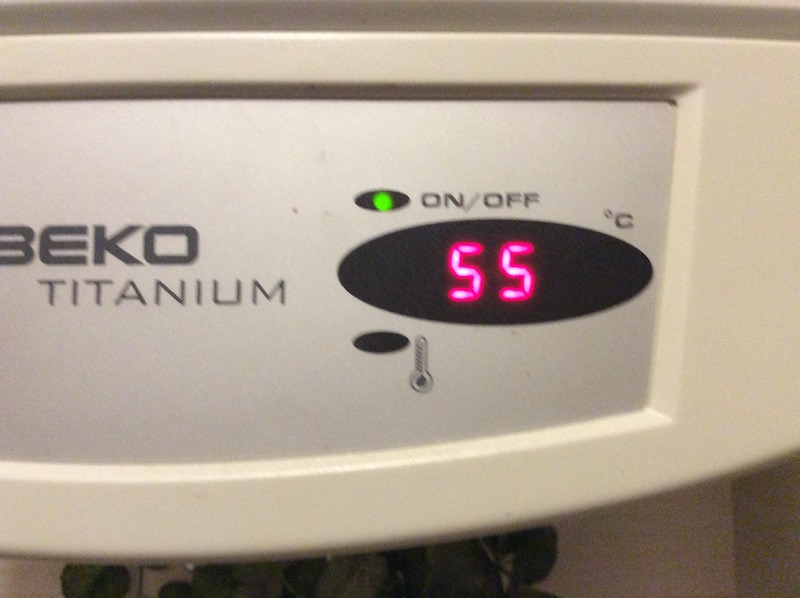Class 5.1: Error propagation
Methodology of Scientific Research
Andrés Aravena, PhD
March 17, 2022
The aim of science is not to open the door to infinite wisdom, but to set a limit to infinite error
Bertolt Brecht, Life of Galileo (1939)
Measurements have uncertainty
Uncertainty of measurement is the doubt about the result of a measurement, due to
- resolution
- random errors
- systematic errors
Uncertainty must be declared
How big is the margin? How bad is the doubt?
We declare an interval: [xmin, xmax]
Most of the time we write x ± 𝚫x
Example: 20cm ± 1cm
Error versus uncertainty
Do not to confuse error and uncertainty
Error is the difference between the measured and the “true” value
Uncertainty is a quantification of the doubt about the result
Whenever possible we try to correct for any known errors
But any error whose value we do not know is a source of uncertainty
Combined uncertainty
Uncertainty of a single read
For a single read, the uncertainty depends at least on the instrument resolution
For example, my old water heater showed temperature with 5°C resolution: 50, 55, 60,…

Real vs measured value
If it shows 55°C, the real temperature is somewhere between 53°C and 57°C
We write 55°C ± 2.5°C
For a single read, 𝚫x = half of the resolution
Combining Uncertainty
Sum of two measurements:
\[(x ± 𝚫x) + (y ± 𝚫y) = (x+y) ±
(𝚫x+𝚫y)\]
Difference between measurements:
\[(x ± 𝚫x) - (y ± 𝚫y) = (x-y) ±
(𝚫x+𝚫y)\]
Multiplying Uncertainty
To calculate \((x ± 𝚫x) × (y ± 𝚫y)\) we first write the uncertainty as percentage
\[(x ± 𝚫x/x\%) × (y ± 𝚫y/y\%)\]
Then we sum the percentages:
\[xy ± (𝚫x/x + 𝚫y/y)\%\]
Finally we convert back to the original units:
\[xy ± xy(𝚫x/x + 𝚫y/y)\]
Proof
\[ \begin{aligned} (x ± 𝚫x) \times (y ± 𝚫y) & = x(1 ± 𝚫x/x) \times y(1 ± 𝚫y/y)\\ & = xy(1 ± 𝚫x/x)(1 ± 𝚫y/y) \\ & = xy(1 ± 𝚫x/x ± 𝚫y/y ± (𝚫x/x)(𝚫y/y)) \\ & = xy(1 ± 𝚫x/x + 𝚫y/y) \\ & = xy ± xy(𝚫x/x + 𝚫y/y)\\ \end{aligned} \]
We discard \((𝚫x/x)(𝚫y/y)\) because it is small
The easy rule for error propagation
\[ \begin{align} (x ± 𝚫x) + (y ± 𝚫y) & = (x+y) ± (𝚫x+𝚫y)\\ (x ± 𝚫x) - (y ± 𝚫y) & = (x-y) ± (𝚫x+𝚫y)\\ (x ± 𝚫x\%) \times (y ± 𝚫y\%)& =xy ± (𝚫x\% + 𝚫y\%)\\ (x ± 𝚫x\%) ÷ (y ± 𝚫y\%)& =x/y ± (𝚫x\% + 𝚫y\%)\end{align} \]
Here \(𝚫x\%\) represents the relative uncertainty, that is \(𝚫x/x\)
We use absolute uncertainty for + and -, and relative uncertainty for ⨉ and ÷
General formula
Assuming that the errors are small compared to the main value, we can find the error for any “reasonable” function
Taylor’s Theorem says that, for any derivable function \(f,\) we have \[f(x±𝚫x) = f(x) ± \frac{df}{dx}(x)\cdot 𝚫x + \frac{d^2f}{dx^2}(x+\varepsilon)\cdot \frac{𝚫x^2}{2}\] When \(𝚫x\) is small, we can ignore the last part.
Example 1
\[\begin{align} (x ±𝚫x)^2& = x^2 ± 2x\cdot𝚫x\\ & = x^2 ± 2x^2\cdot\frac{𝚫x}{x} \\ & = x^2 ± 2𝚫x\% \end{align}\]
Example 2
\[\begin{align} \sqrt{x ±𝚫x}& = \sqrt x ± \frac{1}{2\sqrt x}\cdot 𝚫x\\ & = \sqrt x ± \frac{1}{2}\sqrt x\cdot \frac{𝚫x}{x}\\ & = \sqrt x ± \frac{1}{2}𝚫x\% \end{align}\]
Exercise
Calculate the uncertainty in
The density of the stone ball
the Drake’s formula
the number of piano tuners in your city
Not all uncertainties are alike
Last class we only considered one kind of uncertainty: the instrument resolution
This is a “one time” error
- We notice it immediately
- It does not change if we measure again
My old water heater
My new water heater
Noise
There are other sources of uncertainty: noise
When the instrument resolution is good, we observe that the measured values change on every read
In many cases this is due to thermal effects, or other sources of noise
Usually the variability follows a Normal distribution
Example
Distribution of thermal noise
Real v/s measured data
Discretization uncertainty
Combined
How to combine
The exact distribution is hard to calculate
International standards suggest using computer simulation
They recommend Montecarlo methods
(what we did here)
It is the mark of an instructed mind to rest assured with that degree of precision that the nature of the subject admits, and not to seek exactness when only an approximation of the truth is possible
Aristotle (384–322 BC), Nicomachean Ethics